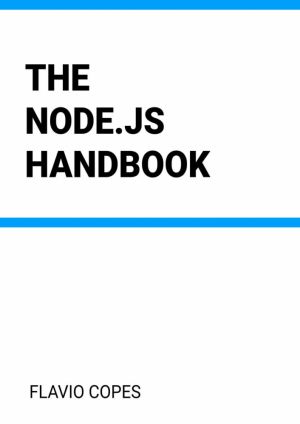The Node.js Handbook
by Flavio Copes
DescriptionTable of ContentsDetailsHashtagsReport an issue
The Node.js Handbook follows the 80/20 rule: learn in 20% of the time the 80% of a topic. The author find this approach gives a well-rounded overview. 





Book Description
Node.js is built on top of the Google Chrome V8 JavaScript engine, and it's mainly used to create web servers - but it's not limited to that.The Node.js Handbook follows the 80/20 rule: learn in 20% of the time the 80% of a topic. The author find this approach gives a well-rounded overview.
This open book is licensed under a Open Publication License (OPL). You can download The Node.js Handbook ebook for free in PDF format (3.2 MB).
Table of Contents
Chapter 1
Introduction to Node
Chapter 2
A brief history of Node
Chapter 3
How to install Node
Chapter 4
How much JavaScript do you need to know to use Node?
Chapter 5
Differences between Node and the Browser
Chapter 6
v8
Chapter 7
Run Node.js scripts from the command line
Chapter 8
How to exit from a Node.js program
Chapter 9
How to read environment variables
Chapter 10
Node hosting options
Chapter 11
Use the Node REPL
Chapter 12
Pass arguments from the command line
Chapter 13
Output to the command line
Chapter 14
Accept input from the command line
Chapter 15
Expose functionality from a Node file using exports
Chapter 16
npm
Chapter 17
Where does npm install the packages
Chapter 18
How to use or execute a package installed using npm
Chapter 19
The package.json file
Chapter 20
The package-lock.json file
Chapter 21
Find the installed version of an npm package
Chapter 22
How to install an older version of an npm package
Chapter 23
How to update all the Node dependencies to their latest version
Chapter 24
Semantic versioning rules
Chapter 25
Uninstalling npm packages
Chapter 26
Global or local packages
Chapter 27
npm dependencies and devDependencies
Chapter 28
npx
Chapter 29
The event loop
Chapter 30
nextTick
Chapter 31
setImmediate
Chapter 32
Timers
Chapter 33
Callbacks
Chapter 34
Promises
Chapter 35
async/await
Chapter 36
The Node Event Emitter
Chapter 37
HTTP
Chapter 38
How HTTP Requests work
Chapter 39
Build an HTTP server
Chapter 40
Making HTTP requests
Chapter 41
Axios
Chapter 42
Websockets
Chapter 43
HTTPS, secure connections
Chapter 44
File descriptors
Chapter 45
File stats
Chapter 46
File paths
Chapter 47
Reading files
Chapter 48
Writing files
Chapter 49
Working with folders
Chapter 50
The fs module
Chapter 51
The path module
Chapter 52
The os module
Chapter 53
The events module
Chapter 54
The http module
Chapter 55
Streams
Chapter 56
Working with MySQL
Chapter 57
Difference between development and production
Book Details
Title
The Node.js Handbook
Subject
Computer Science
Publisher
Self-publishing
Published
2018
Pages
189
Edition
1
Language
English
PDF Size
3.2 MB
License
Open Publication License
Related Books

Node.js is a popular open-source runtime environment that can execute JavaScript outside of the browser. The Node runtime is commonly used for back-end web development, leveraging its asynchronous capabilities to create networking applications and web servers. Node is also a popular choice for building command line tools.
In this book, you will ...
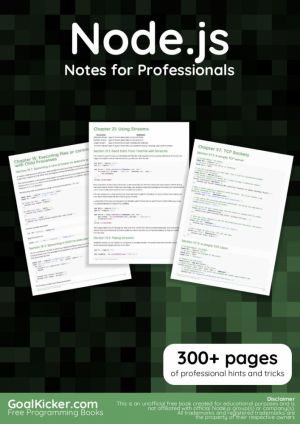
The Node.js Notes for Professionals book is compiled from Stack Overflow Documentation, the content is written by the beautiful people at Stack Overflow....
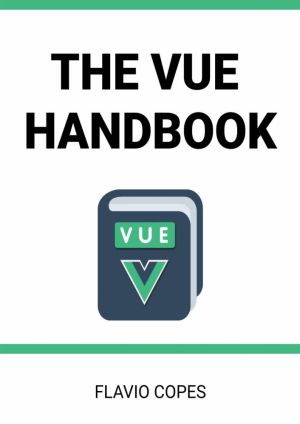
Vue.js is a very impressive project. It's a very popular JavaScript framework, one that's experiencing a huge growth. It is simple, tiny and very performant.
The Vue.js Handbook follows the 80/20 rule: learn in 20% of the time the 80% of a topic. The author find this approach gives a well-rounded overview....
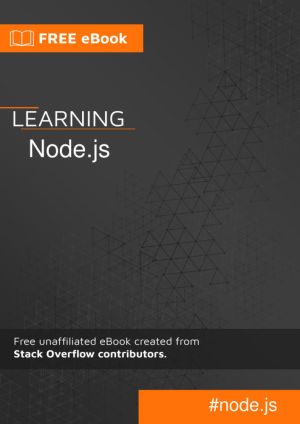
Node.js is an event-based, non-blocking, asynchronous I/O framework that uses Google's V8 JavaScript engine. It is used for developing applications that make heavy use of the ability to run JavaScript both on the client, as well as on server side and therefore benefit from the re-usability of code and the lack of context switching. It is open-...
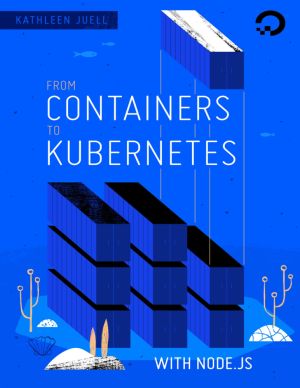
This book is designed as an introduction to containers and Kubernetes by way of Node.js. Containers are the basis for distributed, repeatable workflows with orchestrators such as Kubernetes, and they allow developers and operators to develop applications consistently across environments and deploy in a repeatable and predictable fashion.
The exa...
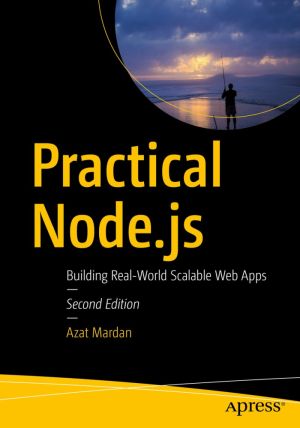
Learn how to build a wide range of scalable real-world web applications using a professional development toolkit. If you already know the basics of Node.js, now is the time to discover how to bring it to production level by leveraging its vast ecosystem of packages.With this book, you'll work with a varied collection of standards and framework...

